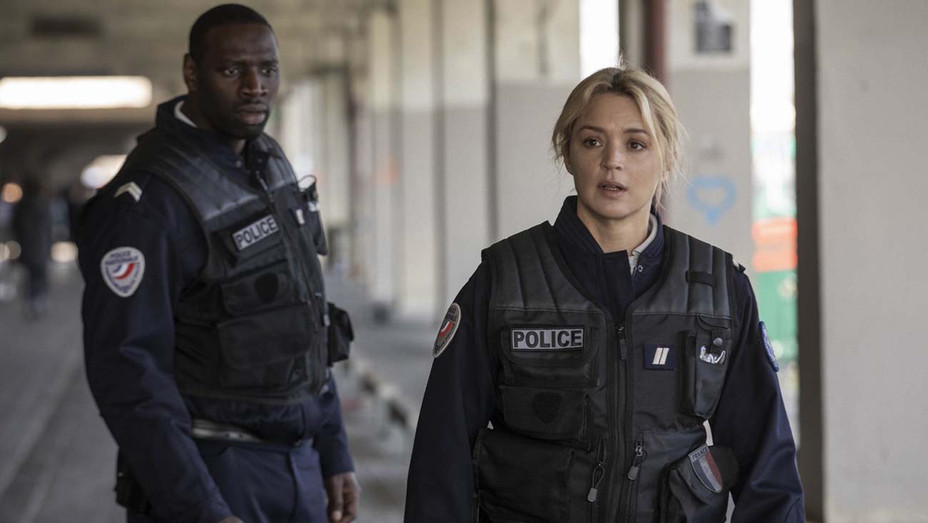Three police officers – Virginie (Virginie Efira), Aristide (Omar Sy) and Erik (Gregory Gadebois) – are shown going about their daily lives. Virginie appears to have a settled domestic life but is secretly preparing for an abortion and rejecting the advances of Aristide, with whom she had an affair. Aristide himself appears to be relatively happy-go-lucky, but has to not only face the reality of his relationship with Virginie, but also his own hidden trauma. Erik, meanwhile, buries himself in his work to distract from his toxic relationship with his wife and alcohol. However, when all three are assigned to escort Tajik asylum seeker Tofirov (Payman Maadi) to the airport for deportation, they are pitched against each other in a conflict of procedure against moral duty.
Director Fontaine does an impressive job of providing insights into the individual lives of Virginie, Aristide and Erik, with the former two’s affair receiving a particularly thorough examination not only through flashbacks to its beginning but also to Virginie’s upcoming abortion of Aristide’s child to prevent her husband discovering the relationship.
This approach also results in nuanced characterisations, with Aristide’s initial bravado revealed to be concealing his trauma over a colleague’s death and Erik’s by-the-book nature sitting alongside his racist treatment of Tohirov. Fontaine’s depiction of the daily routine of the officers before their assignment also provides an impressively realistic view of police activities, with Virginie and Erik shown arresting a man for domestic violence and Aristide and Erik confronting a woman who has severely harmed her son.
However, the shift in focus to the trio escorting Tohirov to the airport is where Fontaine’s approach falters. Virginie and Aristide’s sympathetic view of Tohirov comes across as contrived in order to engineer conflict between the pair and Erik, with neither character expressing any similar views in the preceding scenes.
In addition, this plot development detours the film away from its more sure-handed personal perspective and towards debating the issue of deporting political refugees, which is handled with little nuance as Erik is shown to stereotype Tohirov as a ‘terrorist’ when the two are left alone in the police car. Whilst Efira, the always-reliable Sy and Gadebois do not disappoint in their conveyance of their individual characters’ perspectives on the issue, their performances are not enough to lift this narrative strand up to the same standard as their respective subplots.
Whilst Night Shift impresses with its lead performances and intimate portrayal of the lives of its protagonists, its handling of the thorny issue of asylum seeker deportations feels two-dimensional and didactic. A more nuanced approach mirroring the rest of the film would have provided a greater sense of tonal consistency.
Screening as part of French Film Festival UK 2021
